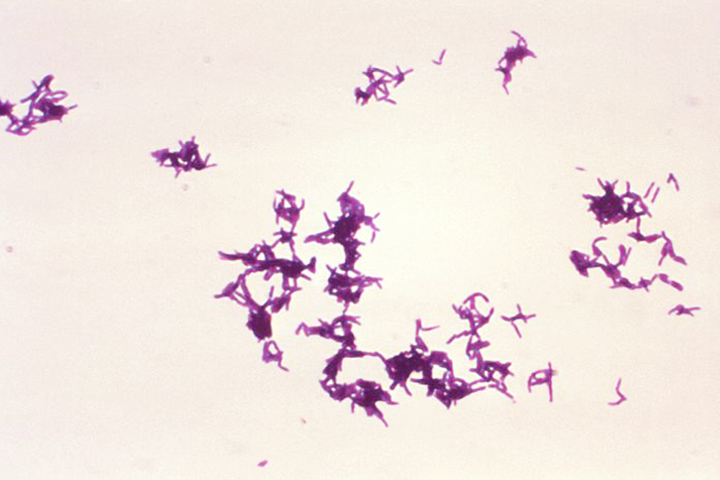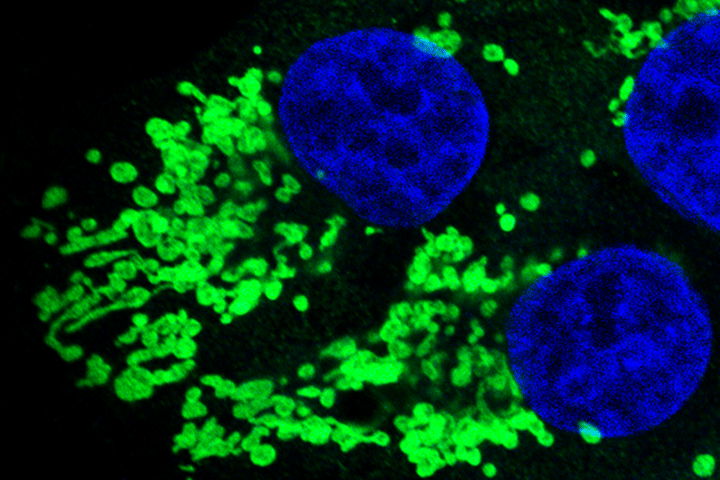Periodontal Disease and Pancreatic Cancer?

It’s no secret that pancreatic cancer is lethal, due in part to the difficulty in detecting it in the earliest, potentially most treatable stages.
For years, scientists have been looking for ways to find markers, as well as identifying risk factors, that could lead to earlier detection.
One potential risk factor gaining significant attention is periodontal disease, which affects about half of the U.S. population to some degree, resulting in inflammation, bleeding and bone and tooth loss.
“For years we thought that periodontal disease was simply a localized infection of the gums, but more evidence is showing that it can potentially be linked to a host of systemic conditions,” explains Boston-based periodontist Terrence J. Griffin, D.M.D., who serves as president of the American Academy of Periodontology.
Although he stresses that much more research needs to be done and the links have not been established as “causal,” periodontal disease shows “strong connections” with many illnesses such as heart disease and diabetes, Griffin said.
“But we’re also learning more and more about periodontitis’ potential association with inflammatory arthritis and atrial fibrillation and even lung infections for hospitalized patients who have been intubated,” he said. “There has been some significant work that to me, at least, has been pretty astounding in terms of its potential link to an increased risk of pancreatic cancer.”
What the Research Shows
Indeed, there have been several studies over the last several years showing gum disease may be a risk factor for pancreatic cancer. Some researchers speculate that chronic inflammation, a hallmark of periodontal problems, may be the culprit.
One such study was published in the journal Gut in 2012. Researchers looked at blood samples from more than 800 European adults and found that high antibody levels for one of the more infectious periodontal bacterium strains Porphyromonas gingivalis were associated with a two-fold risk for pancreatic cancer. Meanwhile, study subjects with high levels of antibodies for some kinds of harmless “commensal” oral bacteria were associated with a 45 percent lower risk of pancreatic cancer.
A prior study conducted by researchers at the Harvard School of Public Health and Dana-Farber Cancer Institute found that periodontal disease was associated with an increased risk of cancer of the pancreas. The study was published in the January 17, 2007 issue of the Journal of the National Cancer Institute.
The results showed that, after adjusting for age, smoking, diabetes, body mass index and a number of other factors, men with periodontal disease had a 63 percent higher risk of developing pancreatic cancer compared to those reporting no periodontal disease.
A study presented at the 2016 annual meeting of the American Association for Cancer Research showed the presence of certain bacteria in the mouth may reveal increased risk for pancreatic cancer and enable earlier, more precise treatment.
The study, led by researchers at NYU Langone Medical Center and its Laura and Isaac Perlmutter Cancer Center, found that men and women whose oral microbiomes included Porphyromonas gingivalis had an overall 59 percent greater risk of developing pancreatic cancer than those whose microbiomes did not contain the bacterium. Similarly, oral microbiomes containing Aggregatibacter actinomycetemcomitans were at least 50 percent more likely overall to develop the disease. Both types of bacteria have been tied in the past to such diseases as periodontitis, or inflammation of the gums.
The researchers hope these bacterial changes may potentially show who is at the greatest risk of developing pancreatic cancer.
Brush and Floss to Avoid Pancreatic Cancer?
Although you can’t control certain pancreatic cancer risk factors like family history, age, race, and gender, there are certain risks that you can control. Among them are tobacco use, losing some pounds if you are overweight or obese, and limiting your exposure to certain chemicals used in the dry cleaning and metal working industries, according to the American Cancer Society.
But, “keeping your gums healthy is just a really good idea for everyone since the evidence is mounting that taking care of your mouth may result in better overall health,” says Griffin.
In the future, he sees stronger collaboration among the dental, medical and research communities. “We all have to be very diligent in working with one another and I think future research will bring us closer to understanding how the mechanisms between oral health and systemic health actually play out,” he says. “Pancreatic cancer is just so tough for people, and anything that we can do as dentists to contribute to the science needs to be done to help people.”





